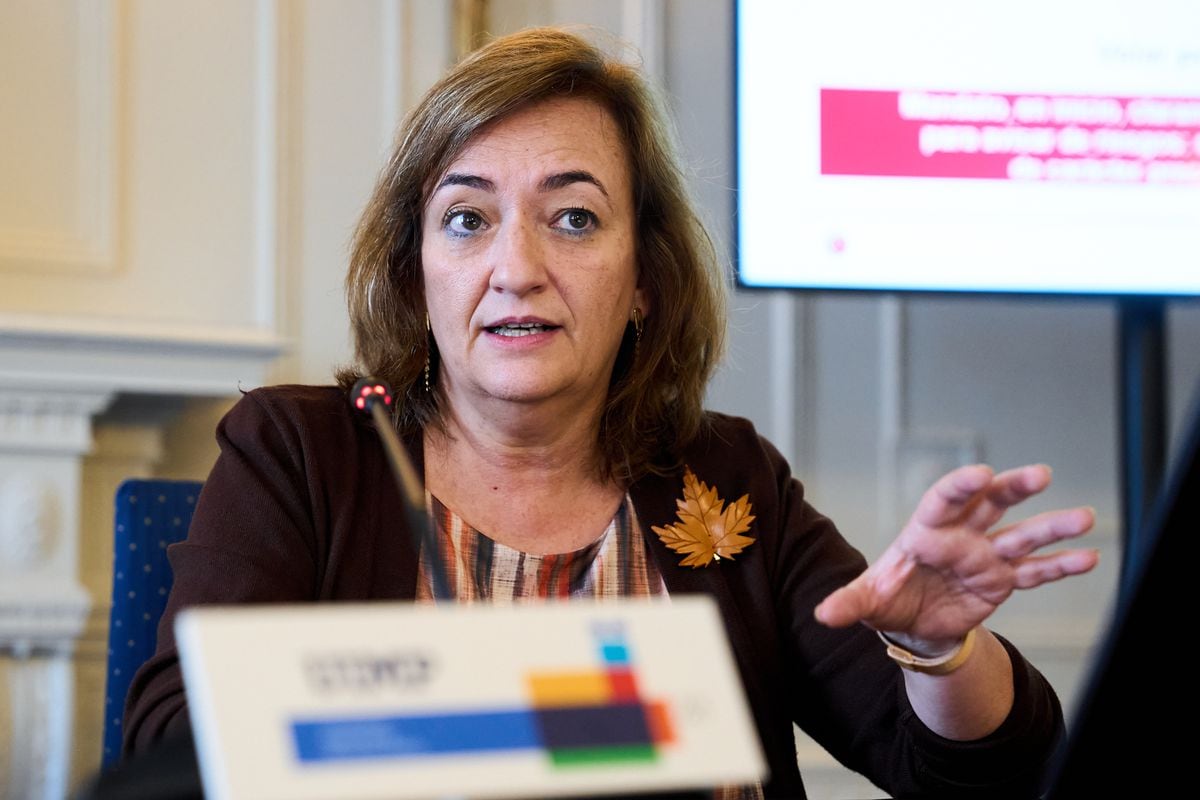The Spanish Minister of Economy, Nadia Calviño, during a meeting of the Economic and Monetary Affairs Committee last January.
Stephanie Lecocq / EFE
Spain delays sending the Recovery Plan to Brussels and has already agreed the bulk of this scheme (reforms in exchange for 140,000 million) with the European institutions.
The Moncloa has included many of the European Commission's suggestions, but it focuses on three core issues, labor, pension and tax reforms, arguing that these changes have a huge political-economic burden and must be agreed with the agents social, the Toledo Pact and the recently created commission of experts for tax reform.
The Government will present this week with the fanfare of the great occasions the central document of the plan, and will send all the papers to the EU between April 20 and 27, a month later than planned.
The US has just put two trillion dollars on the table to reactivate its economy, and promises an additional two trillion in infrastructure and medium-term measures.
Europe reacted well almost a year ago, in the most acute phase of the pandemic, with a very different combination of monetary and fiscal policy from the German-sponsored austerity in the Great Recession.
Brussels proposes to create a European reconstruction fund endowed with more than 1.5 billion euros
EU leaders begin negotiating the massive recovery package: the keys to a decisive summit
But the EU has rested on its laurels with vaccines and has lagged behind economically: the 750,000 million of the European plan may fall short and accumulate worrying delays.
The sense of urgency, in short, has vanished.
This is how the game is facing one of the great operations in recent economic history: Spain, one of the hardest hit countries - with a GDP drop of close to 11% in 2020 - has to reach more than 140,000 million in exchange for a plan recovery of which little is known yet, which has been negotiated behind the scenes and which is somewhat behind the schedule announced at the time.
70 meetings with the Commission
President Pedro Sánchez will present on Monday, April 12, the central document of the Recovery, Transformation and Resilience Plan of Spain;
on Wednesday he will appear before Congress to give an account of the fundamental measures, and that package will be approved in the Council of Ministers next week.
The Executive sent a draft to Brussels between the end of December and the end of January, and since then it has held around 70 meetings with the Commission to fine-tune that scheme, key to the expected rebound in GDP in the short term, but thought, above all, of for the thousand and one times promised change of model of the Spanish economy, according to half a dozen government sources consulted.
The Executive has accepted dozens of suggestions from Brussels in the vast majority of the 30 files that include projects and reforms.
The Commission, for example, lobbied to raise the 5,000 million euros foreseen by Spain for housing rehabilitation plans, and demanded to reduce the temporary employment rate of the Administration and improve matters related to the evaluation of public policies.
The economic vice president, Nadia Calviño, accepted many of those proposals.
But in return it has been planted in three core issues: the labor reform, the pension reform and the tax reform.
Brussels wanted to introduce modifications in these three reforms as well.
He wanted detailed plans for changes to the tax system (including his eternal proposal to raise VAT, for example);
It suggested introducing the so-called Austrian backpack (a redundancy compensation system with which companies compulsorily contribute a certain amount each month to individual savings accounts of each worker, and which they can redeem when they are unemployed) in labor legislation, and he saw little ambitious pension plans;
he wanted the revaluation index not to be eliminated.
Brussels accepts the negotiating break
None of that will appear in the Spanish plans.
Moncloa counterattacked, clinging to the fact that it cannot go any further in these measures to leave room for negotiation to the social agents (in the labor and pension reform), the Toledo Pact (in pensions) and the recently created commission of experts for the comprehensive tax reform, which seeks to bring the tax burden closer to the European average.
Brussels ended up compromising, aware that several countries will hardly deliver their plans before April 30 and that the Spanish reforms "are more ambitious than those of other partners," the sources consulted agree.
The plan arrives very cooked with the economic team of the Commission.
With a remarkable brushing with respect to the initial ideas, which includes grouping the 170 reforms initially planned in a much lower figure.
And a month late, on April 20 or 27, partly because Spain continues to work to meet the requirements of Brussels, and partly because the Commission's own clock will start ticking the day Spain submits all the documentation: The European exam must be ready in a maximum of two months.
"Brussels wants a balanced package in all areas, and to sequence the reforms", point out the sources consulted.
Once it receives the green light in Brussels, a series of milestones will be set for the EU to disburse the funds.
And there the dance will begin: Spain will have to press the accelerator with the labor and pension reforms;
moving from the muses to the theater, translating promises on paper into reforms - euphemism, often cuts - to receive the European money, essential for recovery, along with vaccines.
Negotiation with social agents is now open
The Government already has open the different negotiations with the social agents that it has used as arguments in Brussels to stand in the labor and pension reforms.
In the latter, the conversations have been open for months, although without great regularity in the meetings.
The Social Security plan is to end the first phase of the reform soon, returning to updating pensions with the CPI and promoting the delay in the real retirement age to bring it closer to the legal age.
Minister José Luis Escrivá defends that this part is almost ready.
But the unions don't see it that way.
They demand more ambition in this phase and want the sustainability factor to be repealed, something that the Executive prefers to leave for the second half of the year.
As for the labor reform, at least the most directly linked to it, the dialogue with the social agents began in March.
It began with collective bargaining and subcontracting, something that Brussels, the Minister of Economy, Nadia Calviño, and CEOE do not like.
The European Commission would like to talk about how to reduce temporary employment, something that Work has on its agenda for the next phase.
Expanding the range of topics now could delay the negotiations.
In addition to this, Minister Yolanda Díaz is also very advanced in negotiating with social agents and communities on active employment policies and what is linked to them, an old demand from Brussels.








/cloudfront-eu-central-1.images.arcpublishing.com/prisa/BSW76ADTMZBGXEN5B5THLU2R7M.jpg)